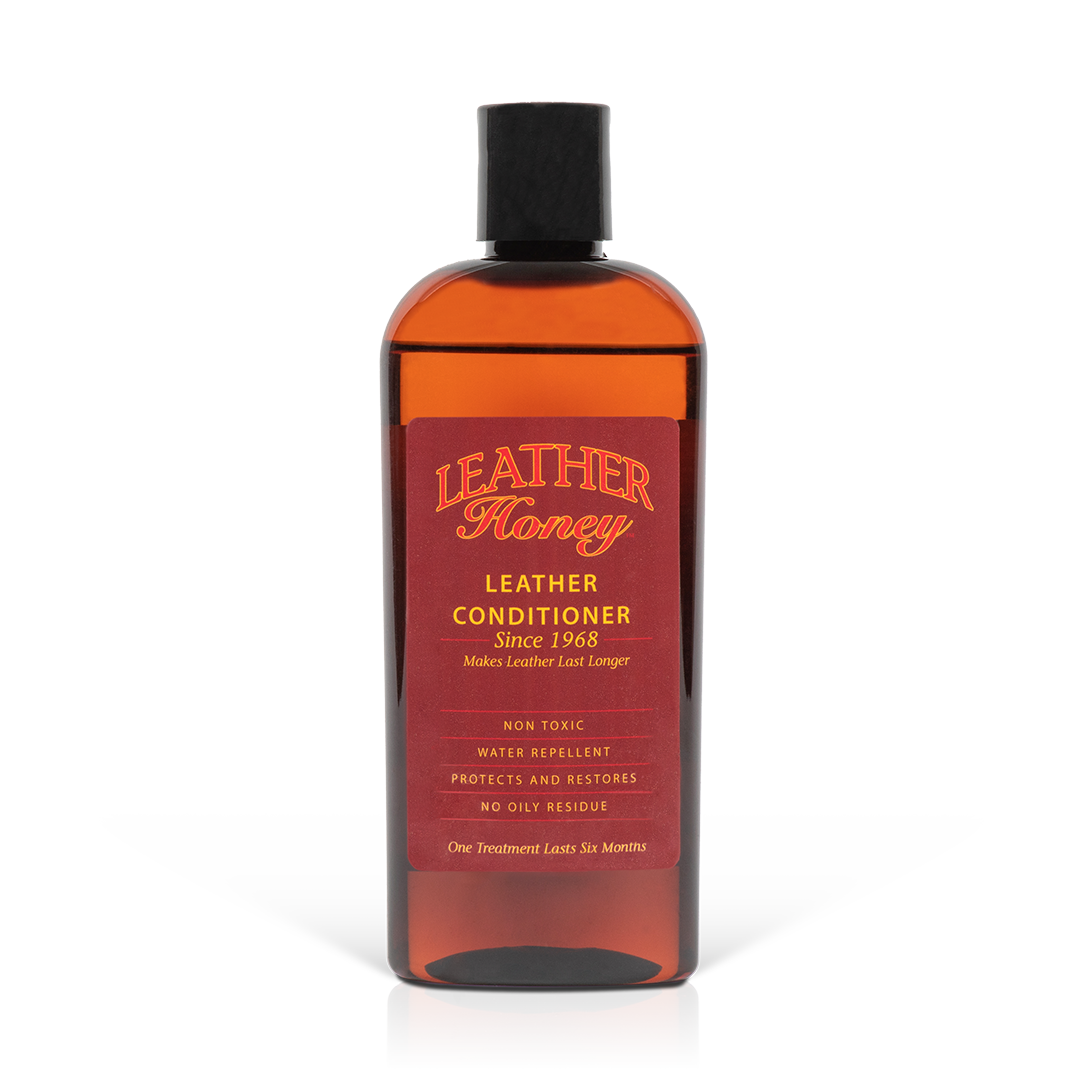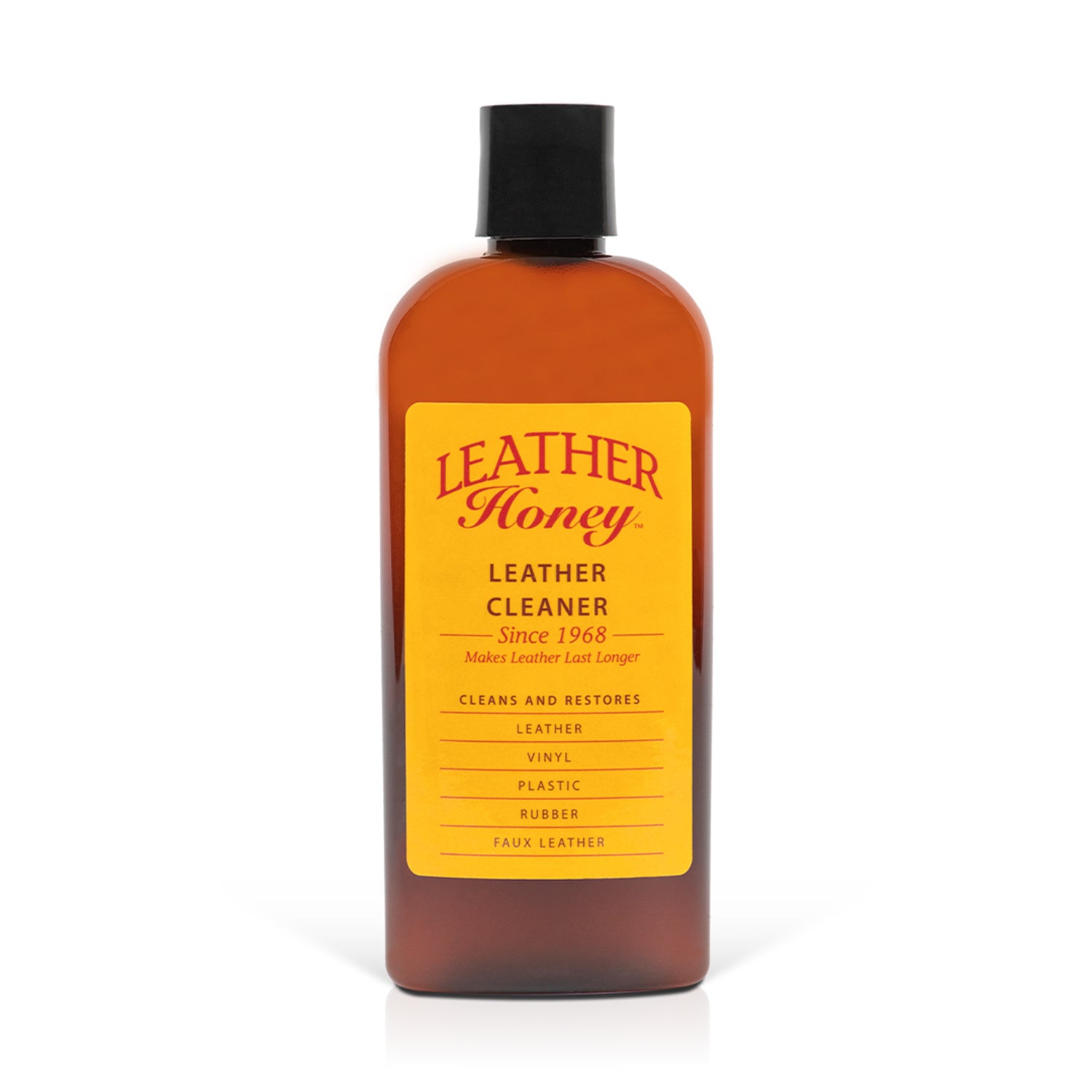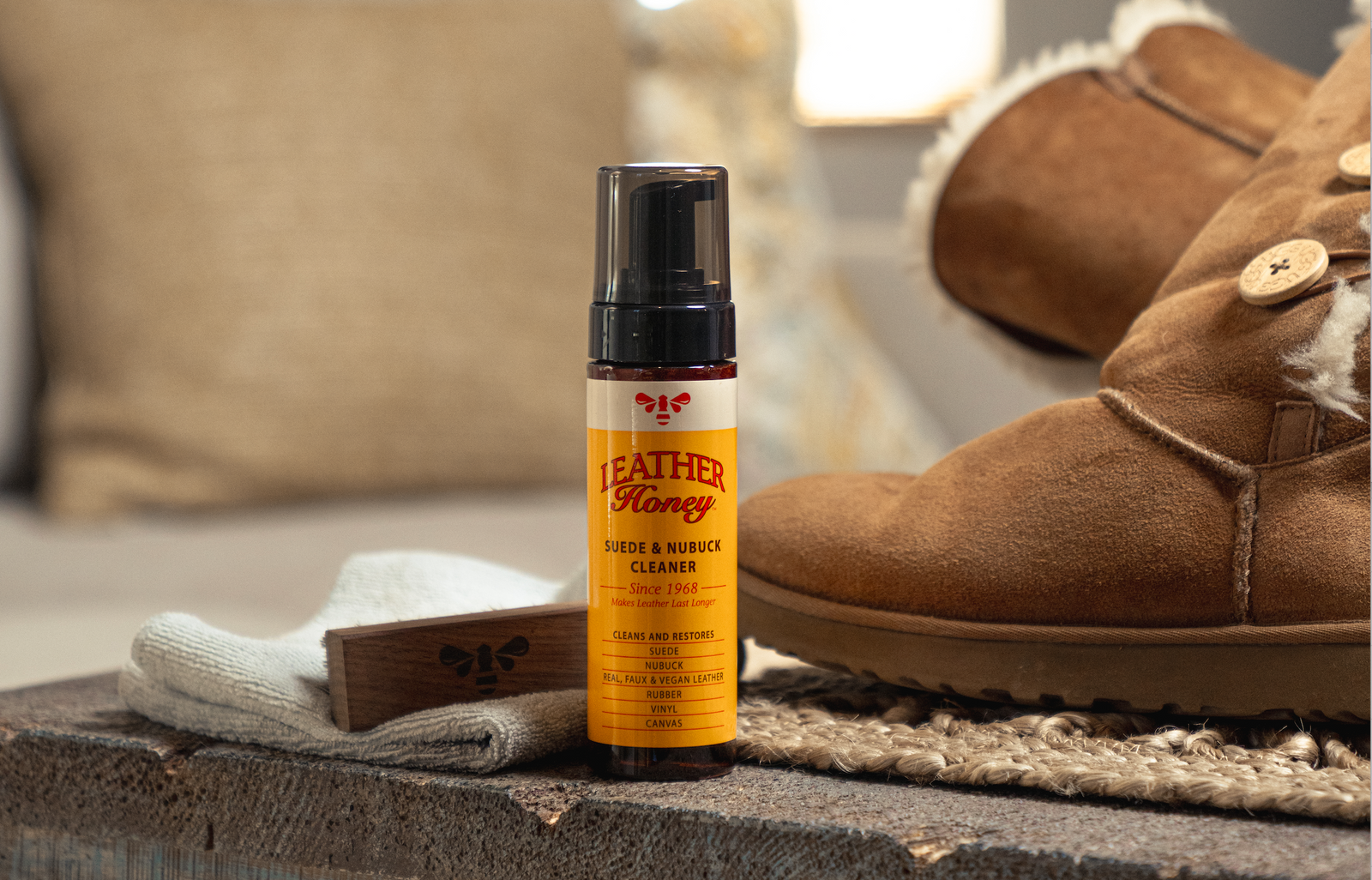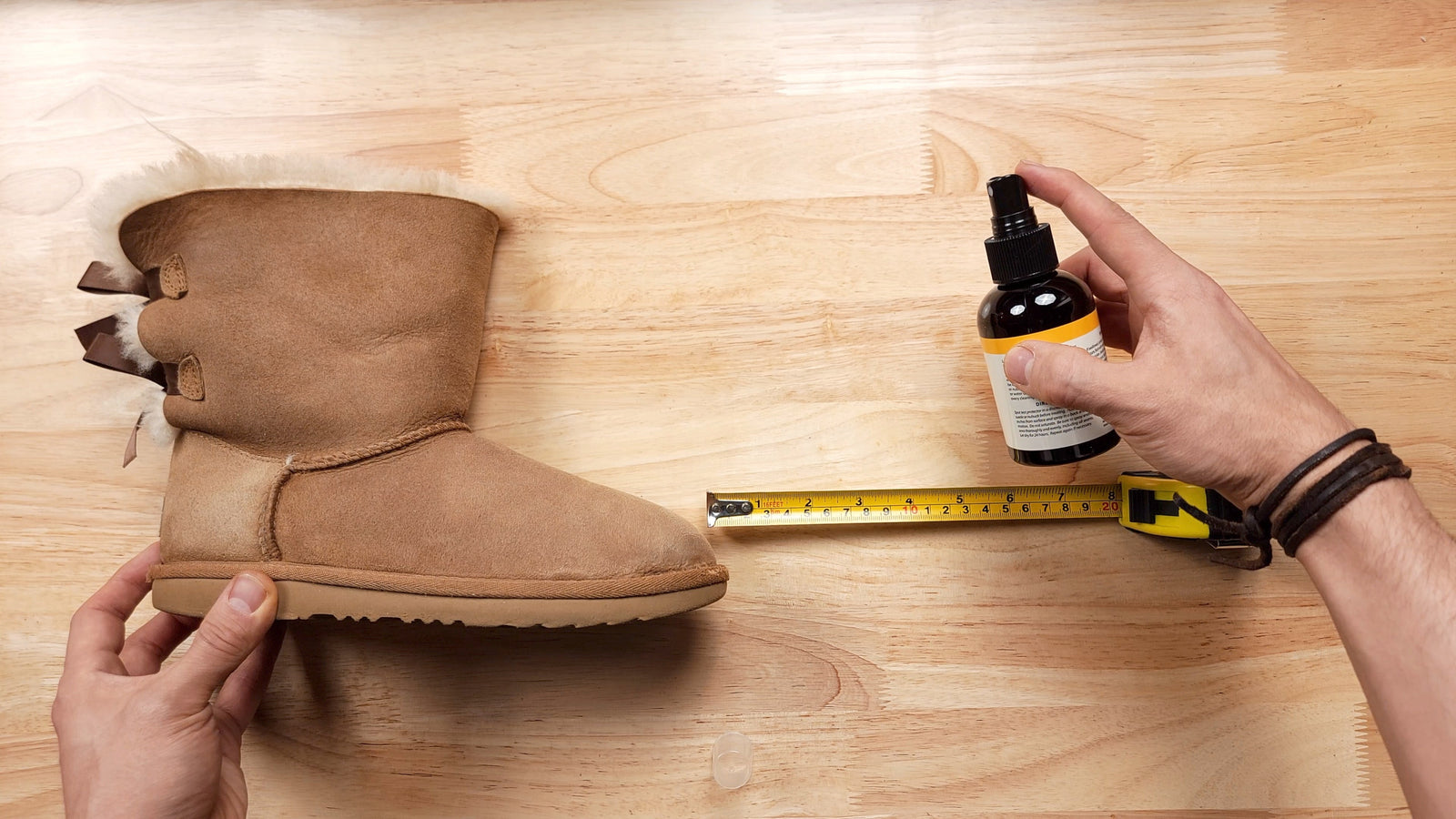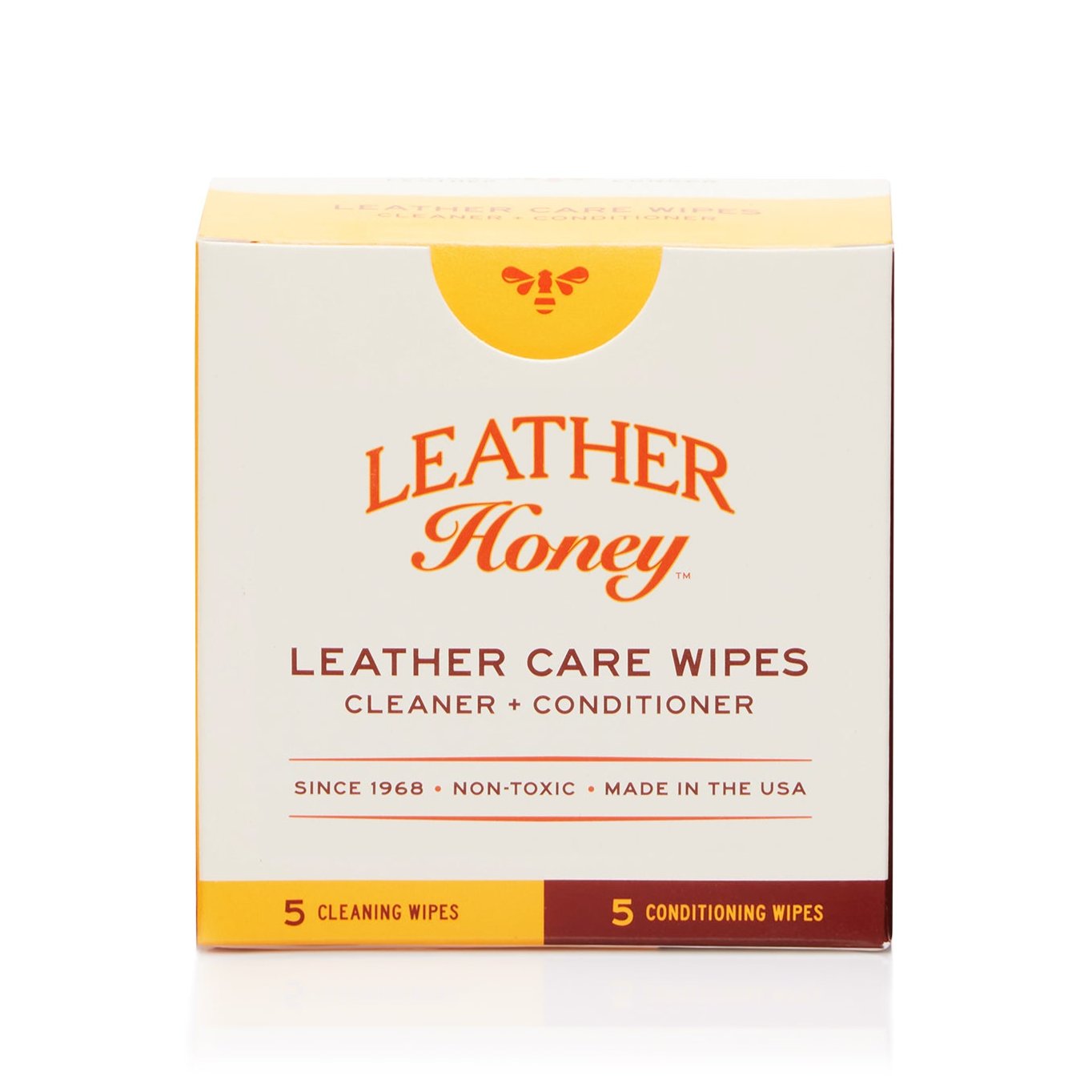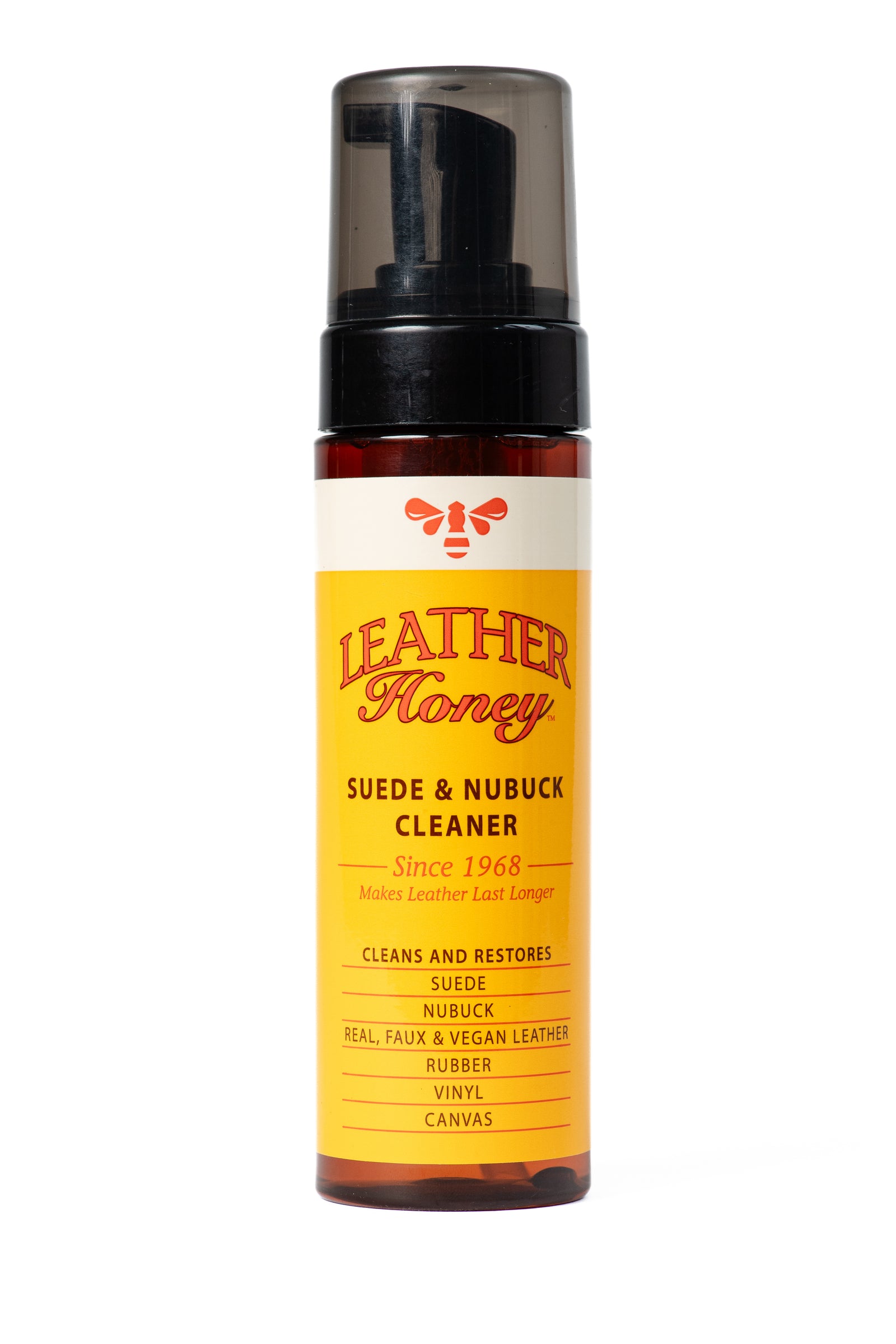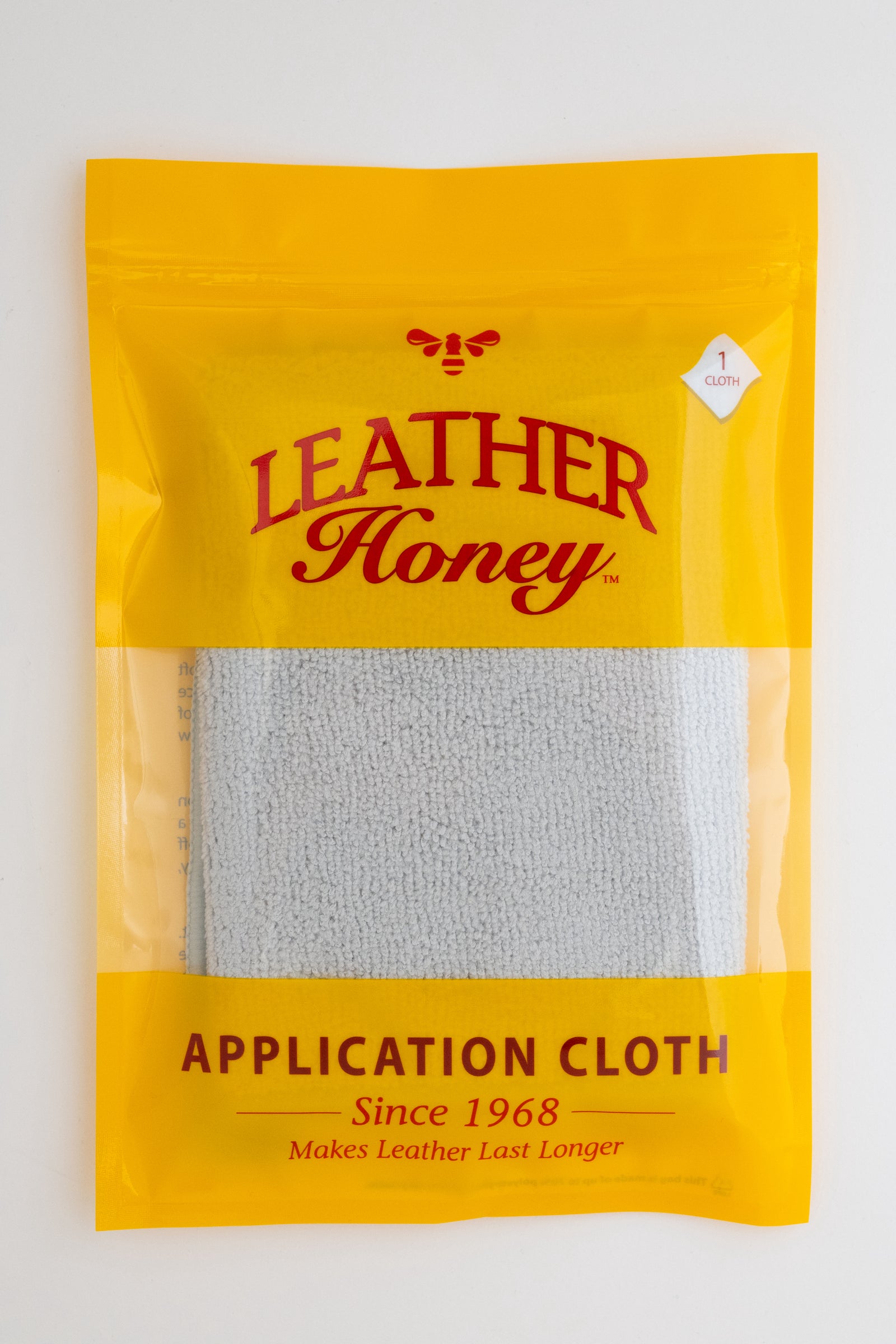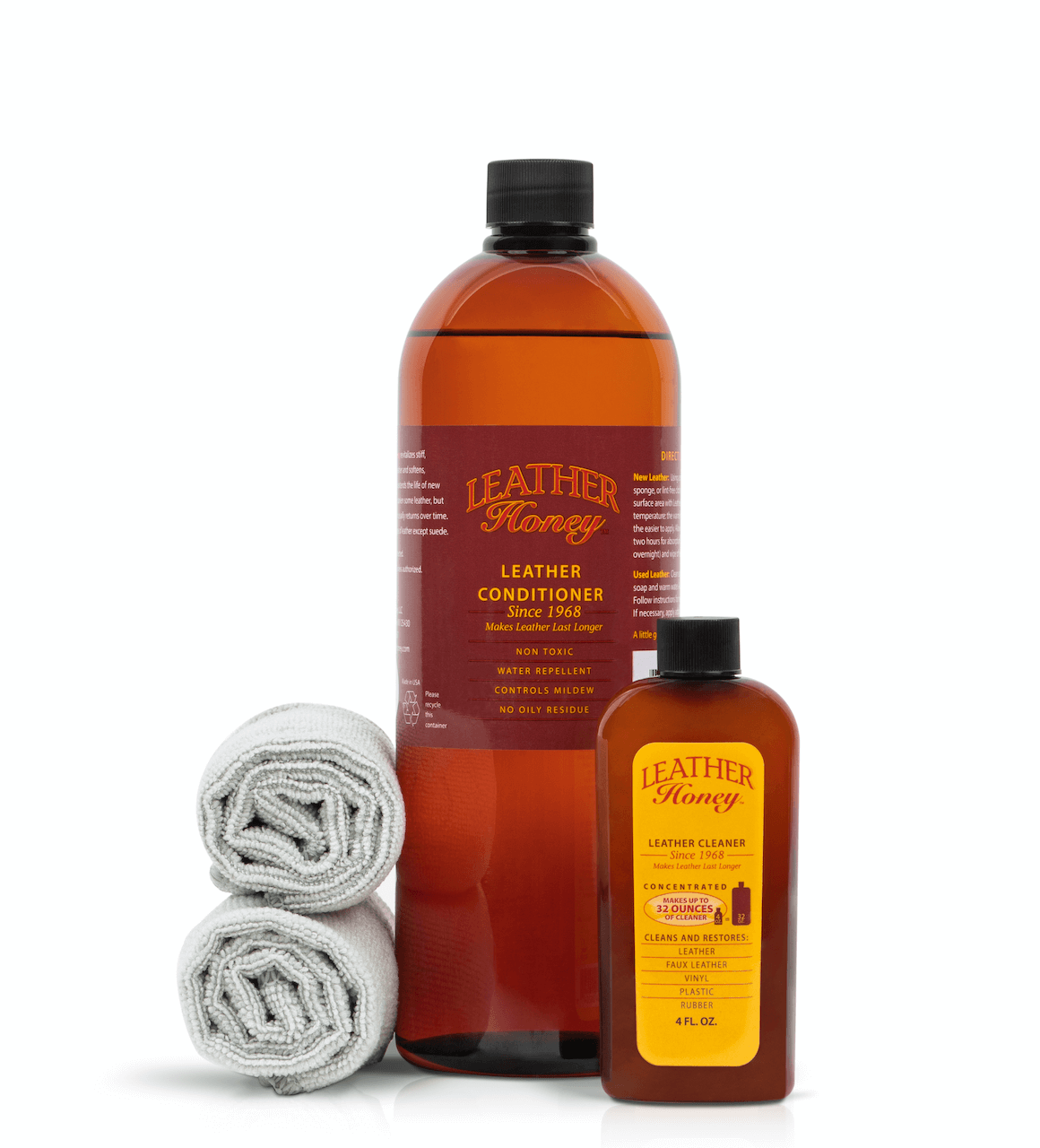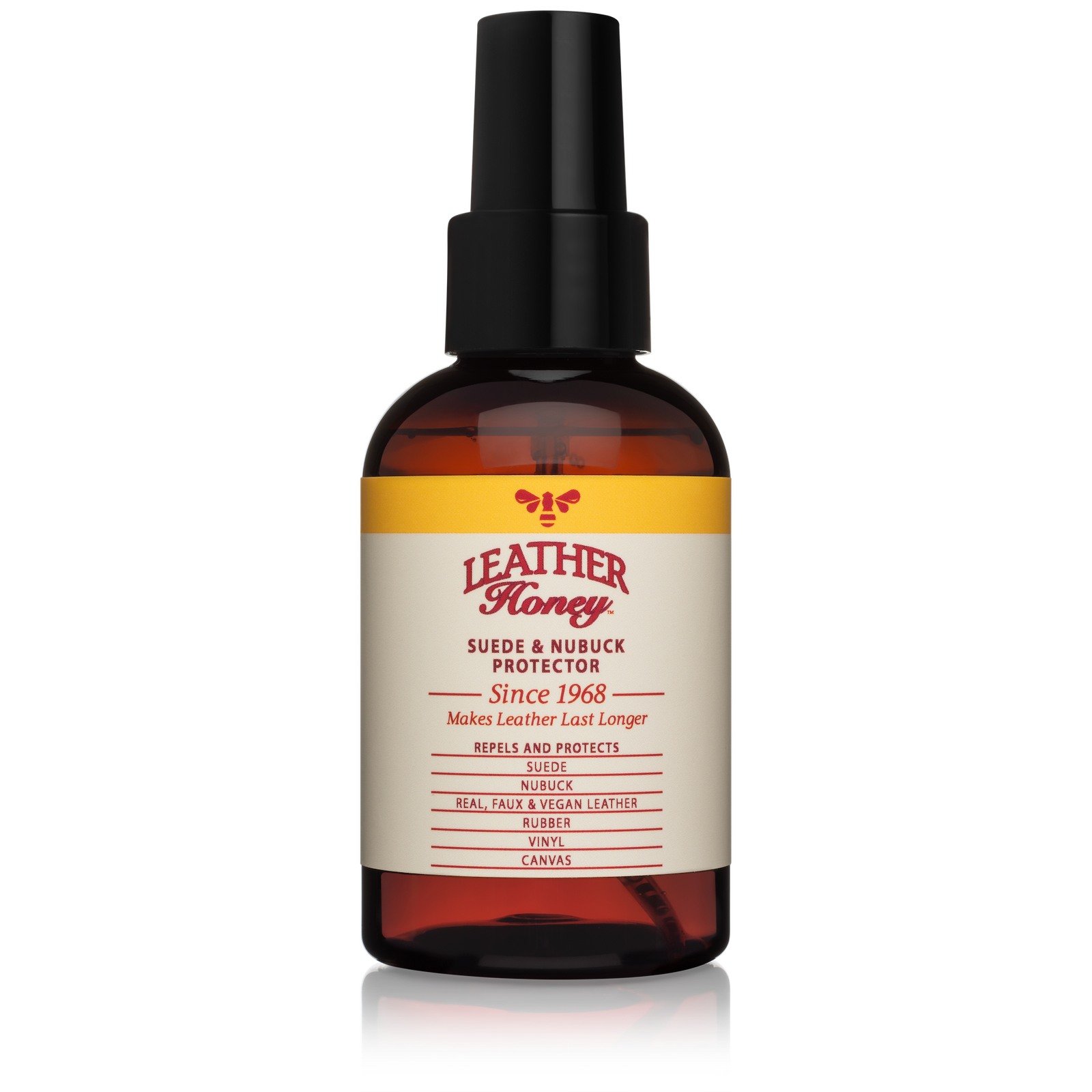One concern we frequently hear about conditioning leather: That the leather conditioner will rot the stitching in the leather. Leather is frequently stitched together to create common leather items, like jackets, boots, car seats, and furniture. Protecting those stitches is a key part of extending the life of expensive leather items, so the type of stitching you have should be considered when you decide how to care for your leather.
Can leather conditioner rot stitching?
The answer is generally no. While some types of stitching may be prone to rot, and some leather conditioners can cause or accelerate that rot, typically, conditioner does not rot leather stitching. Specifically, Leather Honey products will not rot stitching — they’re designed to preserve the leather and the stitching. Our leather conditioner was originally created for leather shoe soles, which are often stitched on, and the product was specifically formulated to preserve the stitching when present.
However, not all leather stitching is equal, and some stitching is more prone to break down over time.
Synthetic leather stitching
Threads made of nylon or polyester are typically the most durable and they are unlikely to rot when exposed to the elements or leather conditioner. These are the most common materials used to stitch leather for that reason.
Synthetic thread can stand up to wet conditions, is unlikely to mold or mildew, doesn’t attract bacteria, and generally lasts a very long time. You do not need to be worried that conditioner will rot synthetic stitching.
Cotton or natural material leather stitching
Cotton thread is rarely used to stitch leather these days, as it isn’t as durable and can be easily degraded under wet or moist conditions — as a natural material, it can quickly mold or mildew, which can lead to rot and weak threads. This also means it doesn’t stand up to conditioner as well; however, in our over 50 years of selling Leather Honey, we have never heard of our product rotting even cotton stitching. That’s because Leather Honey prevents some of the conditions that cause rotting, including mold and mildew.
However, it’s important to understand that other leather conditioners may rot cotton stitching — this is especially true of products that contain neatsfoot oil. Neatsfoot oil is known to degrade the stitching over time.
How to repair rotted stitching
If you’re dealing with stitching that has already rotted, you generally have two options: try to repair or replace. In most cases, if the stitching is breaking, you’ll want to replace it. You can use a local leather restoration company to replace the stitching in your leather.
If your stitching has mold or mildew but isn’t broken or rotten, you may be able to salvage it. Use a mixture of vinegar and water (1 part vinegar to 4 parts water) to kill the mold and mildew on the stitching, then assess the situation to see if it still needs to be replaced.
The bottom line
Most leather these days is stitched with synthetic thread, which makes rot an uncommon problem. This is especially true of leather items that are commonly exposed to the elements, like shoes, boots, jackets, and other outerwear or outdoor items.
However, if your leather item is stitched with cotton thread, you’ll want to be mindful of what you put on your leather and be sure to choose a product that will not rot stitching, like Leather Honey. If you’re not sure what type of stitching is used on your leather, reach out to the manufacturer or company that made or sold you the item for more details.
You May Also Like:
Clean & Condition Leather Couches and ChairsHow to Clean & Condition Leather Car Seats
How to Clean & Condition Leather Boots & Shoes
How to Clean & Condition Leather Jackets
How Is Leather Graded?
Top-Grain vs. Full-Grain Leather: What’s the Difference?
